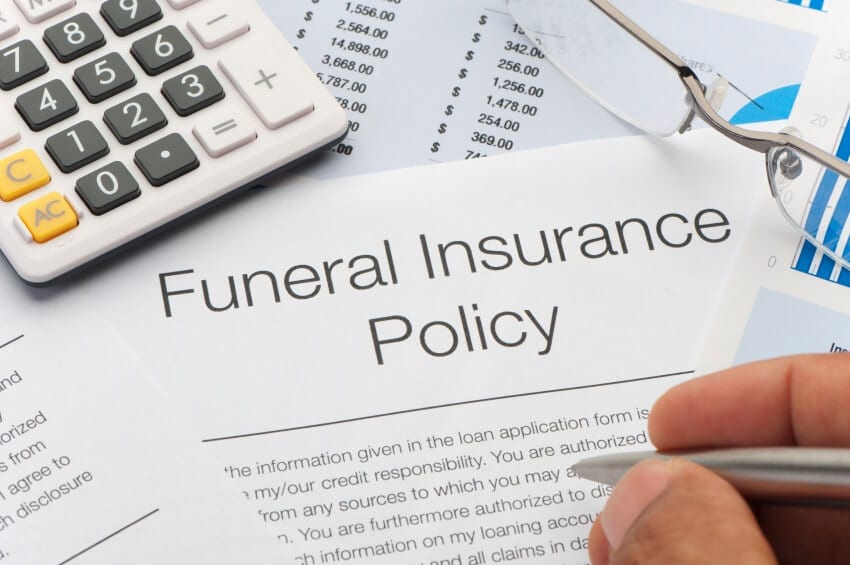Tags: Bribie Island. Financial hardship. Funeral insurance.
With Peter Dallimore – Peter Dallimore is a volunteer Financial Counsellor at the Bribie Island Neighbourhood Centre
As Benjamin Franklin, who wrote in a 1789 letter that “Our new Constitution is now established, and has an appearance that promises permanency; but in this world, nothing can be said to be certain, except death and taxes.” When the former occurs your loved ones will be stressed enough without having to worry about how to pay for your funeral. The average cost of a funeral with cremation is around $8000.
If you want a burial with funeral service, headstone, and interment the average cost is around $19,000. However, there are low cost “no frills” services available. An unattended cremation with an “environmentally friendly” cardboard coffin can cost less than $1500. Some of the savings could be used to celebrate the deceased’s life with a memorable wake. But if the low-cost option is not for you, funeral insurance is one option to cover your funeral costs.
Before signing on to a funeral insurance policy you need to fully understand the conditions attached to any policy that you already have or are contemplating committing to. Funeral insurance is aggressively marketed with advertisements targeting the elderly and the vulnerable with marketing slogans such as “don’t leave your family with financial stress”. Things to look out for when contemplating buying funeral insurance include whether the premiums increase as you get older.
This is usually the case and if you are on a fixed income, you may not be able to afford to pay the premiums at some point in the future. If this occurs and you can’t keep up the payments you will have to cancel your policy and you won’t get your money back. Funeral Insurance policies usually have a one to two-year accident-only period. This means that a benefit will not be paid upon your death if it occurs within the accident only period unless your death is caused by an accident.
Insurers offering funeral cover need to recover the cost plus a profit. They also need to make an assumption on how long you will live and recover the expected cost of the funeral at that time which is typically 5 to 10 years. So unless you die in the next 5-10 years you will probably end up paying more than the cost of your funeral. If you have signed up for funeral insurance and you change your mind a ‘cooling-off’ period, normally around 30 days, should be available after you purchase a policy.
You can cancel your policy in this period and get a full refund provided that you have not made a claim. Some insurers may charge an administration fee for the cancellation. After the cooling off period, you can cancel your funeral insurance policy by contacting your insurer but you probably won’t get any of your money back. If you think an insurance company has misled you when you signed-up for funeral insurance there are some steps you can take to try to get your money back.
Firstly request any recordings of the phone conversation where you were told about your funeral insurance policy. Once you have listened to the tapes, if the company misled you about the policy, call the Insurance Law Service on 1300 663 464 or insurancelaw.org.au (this is a free service). You can also raise a dispute with the insurer. If it is not resolved you can lodge a dispute with the Australian Financial Complaints Authority (AFCA). Alternatives to funeral insurance include opening a dedicated funeral savings account and making regular contributions to it. Your family member can access those funds as soon as they are needed for your funeral, unlike insurance payments that can take time to be released.

Also, there is no risk that your payments will be lost if you miss a few payments, or even completely stop making payments. Your money is safe and will continue to accrue interest. Funeral bonds are another form of saving. If you have super when you die your super fund will pay out your super balance and any associated life insurance to your nominated beneficiary. This money can be used to pay for your funeral. It may take time for it to be paid out so someone may have to pay the costs and then be reimbursed once probate is granted. Talk to your super fund to see what approach it takes.
Pre-paying for your funeral is another option but you need to ensure the funeral company is reputable and hope that it will still be in business when you pass on. If you are a Veteran: You may be entitled to funeral payments from the Department of Veterans’ Affairs (DVA), your trade union, or your state or territory government. See the publication DVA: What to do when someone dies. If your family is receiving a Centrelink benefit a bereavement payment may be available through the Department of Human Services. See their webpage on what to do following a death.
Peter is a Registered Financial Counsellor at the Bribie Island Neighbourhood Centre.
He can be contacted through the Centre on 3408 8440 or by Email at [email protected]. You can make contact if you are experiencing financial hardship or would like general information on financial matters.
The service is free. Peter is a Registered Financial Counsellor at the Bribie Island Neighbourhood Centre. He can be contacted through the Centre on 3408 8440 or by Email at [email protected]. You can make contact if you are experiencing financial hardship or would like general information on financial matters. The service is free.
